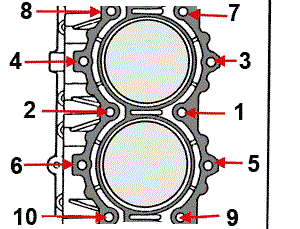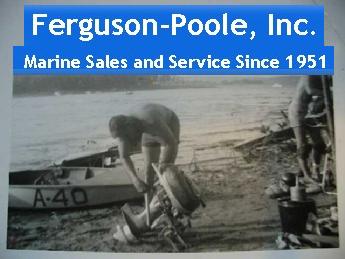Patrickseastar wrote: Your 100% correct. I packed everything up that night and started posting and researching. I somehow stumbled across a post somewhere that stated the same thing about the fuel pump. Went back out and took it apart and low and behold it was split.
I called the man who’s been helping me some to order the parts and he as well said the same things about the compression.
I work in a building with a machine shop in it and they checked the head. Said it was about 2 thousandths out. They surfaced it for me and now I’m just waiting on the parts. Hopefully she’ll be back to life soon. Thanks for your response.
Glad you figured out the root of the problem. It can be a difficult one to diagnose as it's a lot easier to troubleshoot a "not enough" fuel condition; "too much fuel" is not so obvious.
Must be nice to have ready access to a machine shop! .002"-out is not horrible but better to have that head nice n' flat.
If you're in an area with salty or alkaline water, I'd recommend putting some kind of salt barrier on the head bolts before reinstalling. I use Permatex No 3 aviation-type non-hardening gasket dressing. You can get a brush-in-bottle of that at most any auto parts store. Just brush on a very thin coating on threads and bolt shank.
Here are some "good words" I purloined off the InterWebs about torquing the head bolts:
"Chase the threads on the block and bolt, clean well, oil the threads and torque to 225 inch pounds, starting in the center and working out in larger circles." (of course don't need to oil the threads if you're coating the bolt with gasket dressing)
And it's better to tighten in stages; either 2 or 3. i.e., tighten 1st round to around 112 inch-lbs, 2nd to 225. Or, 1st round 75, 2nd to 150, 3rd to 225. Tightening in stages helps to even out the "crush" on the head gasket as you torque 'er down.
Don't use any gasket sealer on the head gasket or surfaces of the head or block. Just make sure the block is scraped free of any gasket residue and block/head are degreased before reinstallation. A razor-blade-type paint scraper works great for those type of surfaces.
Attached is a diagram of the recommended head bolt tightening sequence.
HTH............ed















